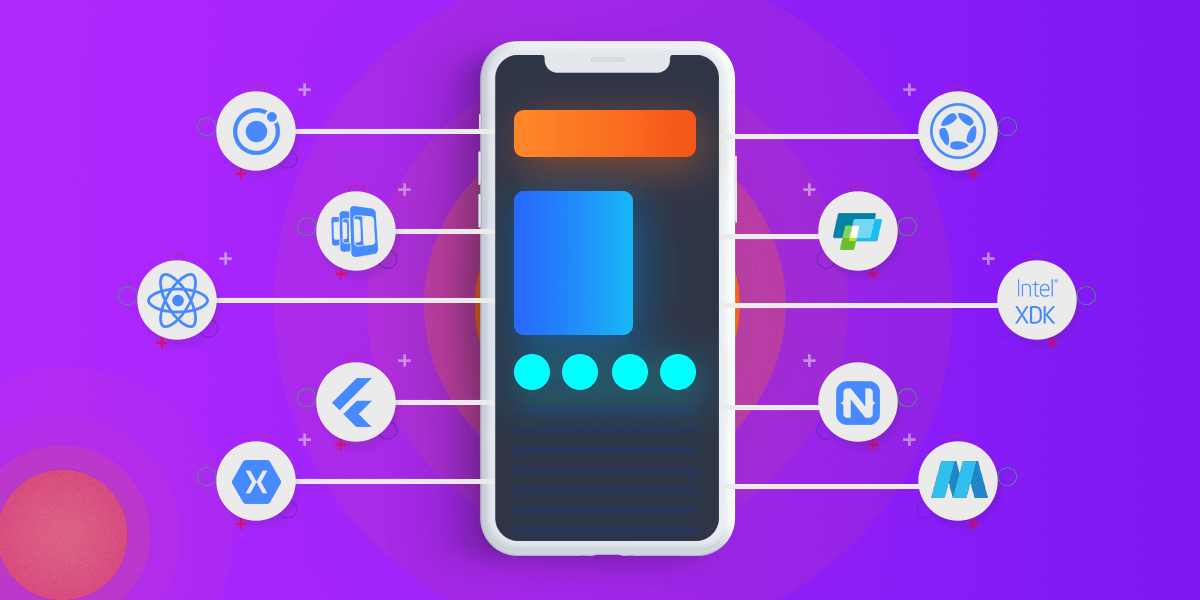Most Widely-Used Cross-Platform Mobile App Development Frameworks
Teethecutecat - Dec 04, 2023

Due to the growing demand for cross-platform mobile applications, there are a plethora of tools, technologies, and frameworks available on the market to build top-notch mobile apps.
- A Group Of Females Demanded Police To Make An FIR On An Application Soliciting Prostitution
- iPhone Apps Are Recording Your Actions Without Permission
- YouTube Is Updating Video Navigation On Its Mobile App
In the last decade, cross-platform mobile app development has become a popular choice among businesses that seek a reliable way to broaden their market reach. Cross-platform is also referred to as a multi-platform approach as it allows developers to build mobile applications that work on multiple platforms using the same codebase.
Due to the growing demand for cross-platform mobile applications, there are a plethora of tools, technologies, and frameworks available on the market to build top-notch mobile apps. However, with countless options, it becomes daunting to pick the right tool and framework that matches the best to your needs. This blog will help you with some key considerations while choosing a framework for cross platform mobile app development. So let's start with knowing the exact meaning of a cross-platform app development framework.
Mobile app developers use different frameworks to build native-like mobile applications that work on multiple platforms such as iOS and Android using a similar codebase. The key advantage of this approach is the shareable code that allows the developers to save time by eliminating the need for writing a separate codebase for multiple platforms. Ultimately, it can accelerate the overall mobile app development process.
As the demand for cross-platform solutions is continuously growing for building mobile applications, the number of tools and frameworks is also growing. In the next section, you will get to know about the most widely used cross platform mobile app development frameworks for Android, iOS, and other platforms.

Most widely used cross-platform mobile app development Frameworks
While choosing the best framework for your project, you need to keep in mind that there is no one-size-fits-all tool available that can meet all your expectations and requirements. Your decision to choose the right framework is dependent on your project type, set objectives, and relevant specifications. Well, here are the top 5 frameworks that will assist you in making an informed decision.
Ionic
Ionic is one of the most popular open-source UI toolkits that helps mobile app developers to create hybrid mobile as well as desktop applications by utilizing web and native technologies such as CSS, HTML, and Javascript with the integrations for React, Angular, and Vue frameworks.
Key Features of Ionic Framework:
Ionic is a SAAS UI framework that is designed specifically for mobile operating systems. It offers multiple UI components for mobile app development. This ionic framework makes use of the Capacitor and Cordova plugins to give access to built-in features of the device such as a flashlight, camera, audio recorder, and GPS. This framework has its own IDE which is known as Ionic Studio for developing and prototyping the applications with minimal coding.
React Native
This open-source UI framework was developed in the year 2015. It is based on Facebook's Javascript library React. It allows mobile app developers to native-like cross-platform mobile applications.
Key Features of React Native Framework:
In the React Native framework, developers can immediately check the changes in the React components due to the Fast Refresh feature. The best advantage of React Native is the focus on the user interface. React primitives associated with native platform UI components that allow developers to create responsive and customized user interfaces.
Xamarin
Xamarin is owned by the Microsoft, it is also an open-source cross platform mobile app development framework that makes use of C# language along with .Net framework to build applications for iOS, Android, and Windows.
Key Features of Xamarin Framework:
Xamarin apps utilize the Base Class library or a .Net BCL, which is a large set of classes having various comprehensive features such as database, XML, IO, networking support, and a lot more. Also, the C# code is compiled in the application to provide you access to many libraries for adding functionalities beyond the BCL. Developers can choose Xamarin.Forms to use platform-specific UI elements and get a consistent look for the application across different OS.
Native Script
Native Script is another open-source mobile app development framework. It allows the developers to create iOS and Android applications using Javascript or Typescript along with other frameworks such as Vue.js and Angular.
Key Features of Native Script:
Native Script helps developers to access native iOS and Android applications. This framework offers a variety of plugins and pre-built application templates, which means it does not require third-party solutions. It is based on certain popular and reliable technologies such as Angular and Javascript. This is what is immensely popular among the mobile app developers. Furthermore, it is commonly used for startups and small size businesses.
Flutter
Flutter is also a widely used cross-platform mobile app development framework that uses a single codebase. Developers use the Google programming language named Dart to create mobile applications with Flutter.
Key Features of Flutter:
Flutter has a reload feature that allows developers to see the changes in the application once they modify the code, and there is no need to recompile. It supports the material design of Google, which is the system that allows developers to create digital experiences for users. It is easy to use various behavioral and visual widgets to build your applications. Instead of relying on Web browser technology, Flutter uses its rendering engine to draw widgets.
The Key Takeaways
Whether you are new to this vast mobile app development world or just struggling to choose the right framework for your new cross-platform app development project. It is imperative to take a closer look at your requirements and compare them with the specific framework's capabilities. This will lead you to find the right cross-platform mobile app development solution that will also be the best fit for your business.
Featured Stories

Mobile - Sep 28, 2023
Why iPhone 15 Costs A Lot Even Though It's Made in India?

Mobile - Aug 15, 2023
4 Ways AI Could Change The Mobile Gaming Industry

Mobile - Aug 09, 2023
Apple iPhone 15 Launch Date in India, Price, Specifications & More

Mobile - Jul 28, 2023
Best Gaming Smartphones In 2023 Game Enthusiasts Should Know

Mobile - Jul 28, 2023
Which Smartphone Has The Best Camera 2023?

Mobile - Jul 12, 2023
Samsung Galaxy F54 5G Price in India (July 2023)

Review - Oct 18, 2022
Online Gambling in India is Flourishing

Mobile - Sep 27, 2022
Three Reasons Why the Gaming Community is Focusing more on Playing Mobile Games

Mobile - Sep 22, 2022
The Best Budget Smartphones: An Option for Everyone

Mobile - Sep 13, 2022
Comments
Sort by Newest | Popular